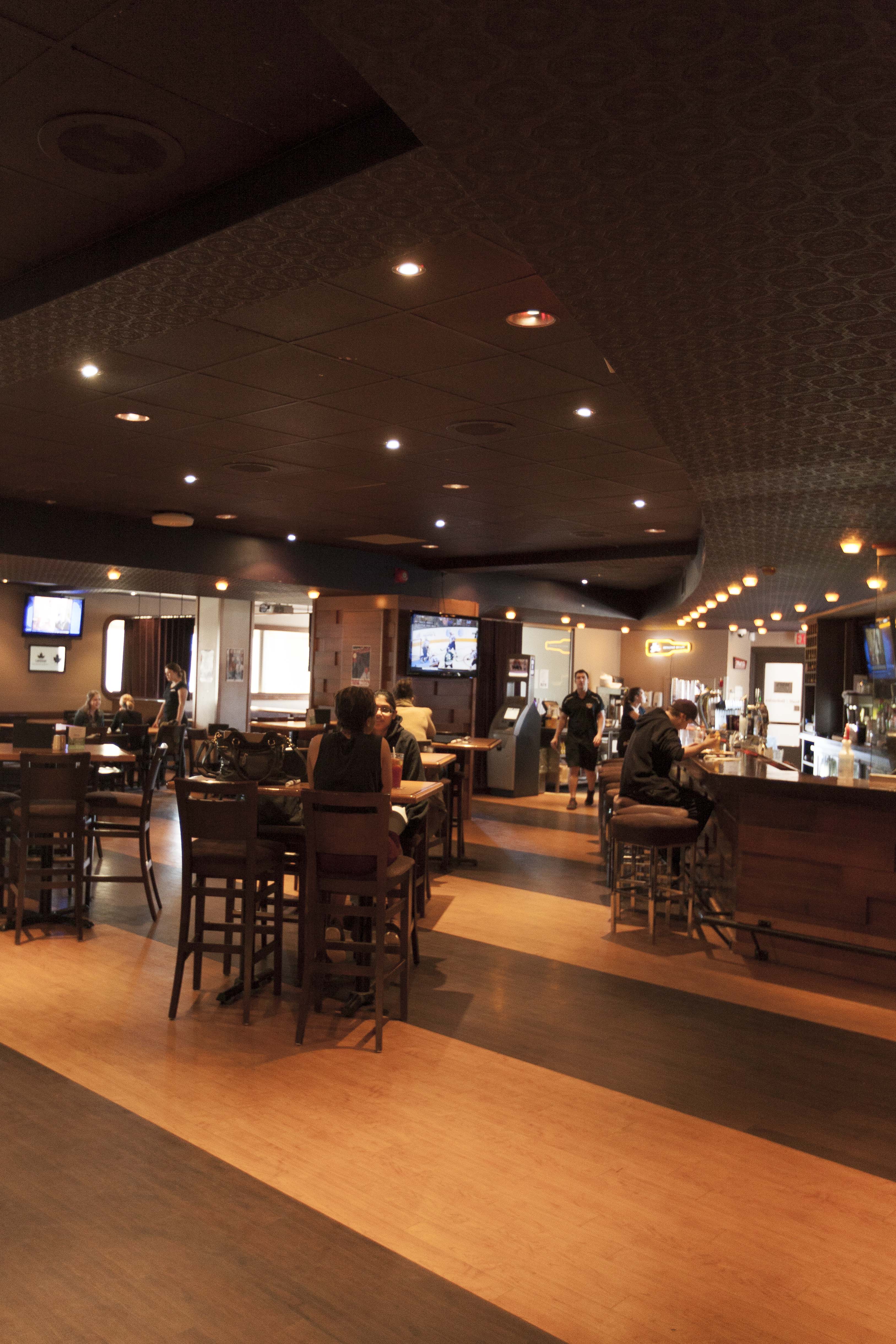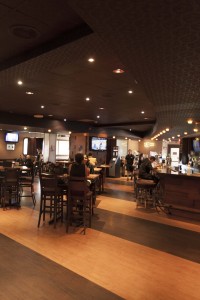Campus businesses follows demand

Over the years, Wilf’s restaurant and the Turret have evolved with the Laurier student body

This year, the Turret Nightclub is celebrating its 40th anniversary at Wilfrid Laurier University. And while Turret Saturdays and Wilf’s spinach dip might seem like essential parts of the Laurier experience, the businesses that offer them have changed a lot since the seventies when they were first opened by the Wilfrid Laurier University Students’ Union.
According to Jeyas Balaskanthan, hospitality services director, in the late nineties and early 2000s, there were more sales in beverages than in food at Wilf’s Restaurant and Bar. It’s only within the last five to six years that Wilf’s has evolved into a full-service restaurant.
When grade 13 was phased out in 2003, the demographic at universities changed as most first-years entering post-secondary were younger than the legal drinking age.
“Now a quarter of your student population can no longer purchase alcohol,” explained Chris Turner, interim executive director and Chief Operating Officer of the Students’ Union. “So the decision was made to let’s focus more on food than alcohol sale.”
The Turret was also impacted by the influx of underage students. While it used to be open Friday, Saturday and Sunday nights, they are now only open on Saturday.
“To be honest, there’s way more competition in town now than there ever was five or six years ago,” said Andy Neilson, operations manager of Wilf’s and the Turret. “So the demand for one great night surpassed the demand for two sort of okay nights.”
This provided the university with the opportunity for the Turret to be available for other uses, such as events put on by campus clubs, other internal stakeholders and external patrons.
Recently, Wilf’s decided to cancel their Tuesday programming which offered late-night entertainment.
“That took a hit after the flood, there’s no denying it,” Neilson said of Wilf’s Tuesday. “We lost a lot of people. We were never really able to rebuild that base.”
Though the programming ran for 10 years, Neilson said since the flood the demand just hasn’t been there.
The flood happened in fall 2011 and caused the business to be shut down until February 2012. While Wilf’s Tuesday suffered as a result of this, according to Turner the restaurant as a whole has been doing better since then.
“Two years ago, Wilf’s had its best year in six or seven years,” he said.
They are currently finalizing their audited statements for last year, but the numbers are looking just as good.
From a business standpoint, Turner said they don’t always make decisions that will be the most profitable.
“Sometimes you have to forgo potential profit to make sure you live within your mission and vision,” he said.
For the Union, that means serving students. Turner explained that they have longer hours than they would otherwise.
In addition, the menu has more variety, offering vegetarian, vegan, gluten-free and halal options. Lastly, they only hire students.
“Every September is like opening a new restaurant,” said Neilson, which isn’t the most efficient.
In terms of the Turret, Turner said there isn’t as much revenue than in the ‘80s and ‘90s when it was operating three nights a week.
Despite this, Balaskanthan said they will always strive to keep it open so students have a safe environment on-campus to spend their night out. This, he continued, is something students can’t be guaranteed if they go off-campus.
“One of the nice things with Wilf’s doing well is it kind of subsidizes to a large extent the Turret. So overall, combined, it’s pretty close to where we want it to be a break-even point,” said Turner.
Going forward, they are thinking of ways to keep space at the Turret occupied when it isn’t functioning as a nightclub. They also want to continue to grow their catering service, which has increased since 2009. In addition, Wilf’s has expanded their take-out service in recent years.
“For me it’s just constantly listening to the feedback and finding ways to add value to the experience and driving it forward with what people are looking for,” said Neilson.
Their habit of listening to student feedback is a possible reason for why the restaurant has been doing so well.
“Ultimately the students who use our spaces the most, they’ll tell us what they want out of it,” said Neilson.
“If you just follow that, that’s what’s really helped Wilf’s do exceptionally better since the flood, is the focus and listening.”


